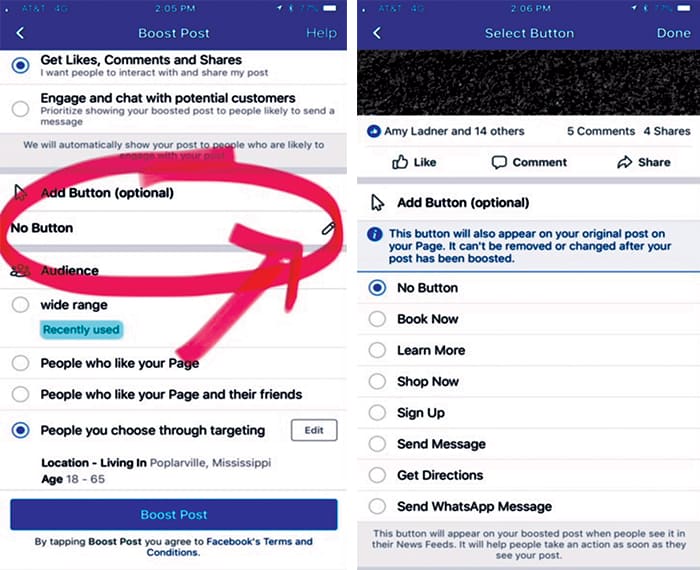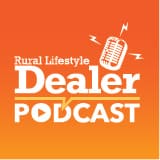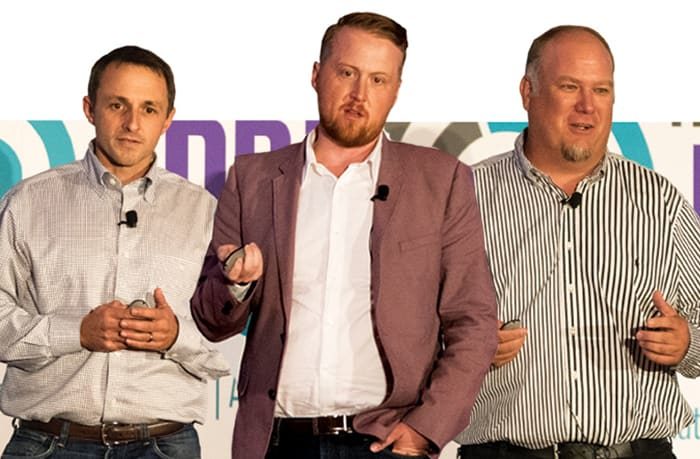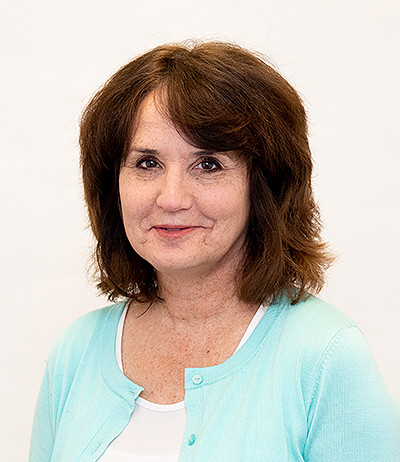Ditch the agency, do your own marketing campaigns, save money and get better results. You just need to get started. That’s the message from three dealers, Doug Vahrenberg, Lee Parish and Ben Garton.
Doug Vahrenberg owns Vahrenberg Implement, a Massey Ferguson dealership in Higginsville, Mo., and YouTube videos are the cornerstone for his marketing program. “I’ve spent less on advertising in the last 5 years and I’m growing,” Vahrenberg says.
Lee Parish, owner of Parish Tractor, a Kubota dealership with locations in Poplarville and Hattiesburg, Miss., is building his reputation through Facebook, especially with boosted posts. “About 4 years ago, we really committed to Facebook. Our goal by next year is to have 8,000 followers — true followers, not a database that we purchased,” Parish says.
Ben Garton, chief marketing officer for Garton Tractor, a 10-store New Holland and Kubota dealership in California, follows a “get negative” approach when it comes to his advertising programs. “Dive into the details of what you are paying for,” Garton says.
Here are details about the steps they take and the results they are achieving.
Vahrenberg Implement: Selling Via Videos
Doug Vahrenberg is the third generation owner of Vahrenberg Implement, a Massey Ferguson dealership in Higginsville, Mo. The dealership faces tough competition — 45 tractor dealerships within a 45-mile radius.
Vahrenberg is a competitor in another realm as well — fishing. He’s a professional bass tournament angler, competing in the Bassmasters Open Tournament series. Vahrenberg says he often received questions from other anglers looking for tips, so he decided to create short educational videos. The marketing manager for one of his sponsoring companies asked why he wasn’t doing the same for his dealership.
That was in 2011 and he has since published more than 170 videos to his YouTube channel and his videos have more than 5 million minutes of watch time. “I started making videos to answer questions and help customers make the best decision. I ‘give away’ information, but it helps create a better image for my dealership. I want to have control of my dealership’s image and taking marketing into my own hands allows me to create my own unique identity,” Vahrenberg says.
Setting Up
Vahrenberg has found a cost-effective and efficient approach for video production. He uses a GoPro video camera and PowerDirector video editing system. He sets the camera on a tripod when he is talking to the camera and also uses the tripod when he shoots images higher up on the equipment. He has shorter tripods that he uses when he’s holding the camera for other shots as well as suction cup and clamp-type mounts for attaching the camera to the equipment.

After Doug Vahrenberg, owner of Vahrenberg Implement, was told by his OEM’s ad agency that a Google AdWords campaign would cost $1,500 a month, he opted to do it himself. In the first month, he spent $50, plus a $100 free promotion offer. that campaign generated 6,491 views, 93 clicks and 2 verified calls. After 8 months, still spending $50 a month, he had 47 verified calls and people were spending over 100 seconds per visit on his website.
Creating Content
Video topics are generally based on customer questions, new products, what’s popular in the market, etc. His most popular video is one of the Rhino Ag LP Plow, which has over 732,000 minutes of watch time. “People walk in the door and they just buy it. And I know they’ve watched the video because they comment about it. It’s not only the high priced equipment, but the little equipment that can add margin and revenue to your business that you wouldn’t capture before,” Vahrenberg says.
He’s found another benefit for the videos. “It makes me a better salesman because I know more about that product because of the research I have to do for the video. So it’s a win-win situation producing them,” Vahrenberg says.
Recently, he has gone back and added better titles, descriptions and thumbnail images (instead of just video screen shots), to help with search engine optimization and
viewer interest.
“You also have to make sure your keywords fit your video. If it doesn’t work, change it around and see if it helps increase your viewership,” he says.
Cross-promotion brings more benefits. He shares his video links on Facebook, Twitter, Instagram, his Google Plus page and dealership newsletters. The videos are also promoted in the store, where he runs condensed versions of the videos on a screen near the parts counter.
Monetizing Videos
The channel’s viewership has captured the attention of YouTube advertisers, even bringing revenue to Vahrenberg. “To be honest, I hated videos with ads in them, but I had to figure out how to support the time and effort. I wasn’t getting support from OEM manufacturers to produce videos even though I was helping them sell product around the world. About every video on YouTube has ads, so I thought, ‘Why resist it?’” he says.
Extending Reach
Vahrenberg now uses that revenue to pay for his Google AdWords campaign. He first started working with the program in 2017 through Rhino Ag. The monthly fee was $200 and he saw big results. He approached his OEM’s ad agency, but the fee was much more than he wanted to pay. “Being already on YouTube, I kept getting deals about AdWords and I finally just took the time to research it. Their program at that time was if you spent $50, they would give you an extra $100 in Google AdWords.”
“It makes me a better salesman because I know more about that product because of the research I have to do for the video…”
— Doug Vahrenberg of Vahrenberg Implement
Now, he budgets $50 a month and adds $50 from YouTube revenues and is seeing big results. “In the last 30 days from AdWords, I have over 75,000 page views and 58,000 impressions and I’ve had 4,000 clicks to my website,” he says. Vahrenberg explains the terminology: “A page view is what Google counts in your reports every time a user views a page displaying Google ads. We count one page view regardless of the number of ads displayed on that page. An impression is counted for each ad request where at least one ad has begun to load on the user’s device. It’s the number of ad units (for content ads) or search queries (for search ads) that loaded ads. A click is counted the number of times a user clicks on an ad.”
Adding Tools
Vahrenberg’s focus on educating the customer through YouTube and his website posed a dilemma. “My site was getting congestion, so I created a ProBoards forum (www.ViTractorWorld.Proboards.com). Customers can learn everything in a single place. I also do comparisons, showing like models of other brands. That’s probably one of the missed things in this industry,” he says.
Finding Your Focus
Vahrenberg says his marketing efforts require some late nights and he boosts his production efforts during slow times at the dealership. YouTube videos work well for him, but he says dealers need to figure out what works for them and pursue it.
“It’s like servicing your own tractor. If you’re not comfortable doing it, there are people that will do it for you, but it’s going to cost you. Based on your budget and how much you want to spend, you can do some of the research and YouTube can be your best friend. Just like me selling tractors, there are people teaching you how to do some of these marketing programs,” Vahrenberg says.
Parish Tractor: Promoting Posts
Lee Parish was a regional sales manager for Kubota before transitioning to dealership owner. He wanted to leave the corporate life of travel and liked the idea of owning a small business. That opportunity arose in 2012 back in his home state of Mississippi when Poplarville Sales and Equipment came up for sale.
Like many new and established business owners, his day was a constant mix of demands and responsibilities. “And about that time, here comes in an advertising agent or someone with a TV promotion or radio promotion and it almost felt like whatever mood I was in, I would say yes or no to them, and I had no strategy,” he says.
“Facebook is easy, but it requires much attention…”
— Lee Parish of Parish Tractor
Parish changed his approach by transitioning an accounting employee, Alexis Raybon, to a new role as marketing coordinator. They build a marketing program together and generally set a marketing budget of 1% of the prior year sales figure or against the gross profit of the prior year.
Targeting with Facebook
Parish has been particularly successful with Facebook and boosting his posts to promote his dealership, not just the OEM brand. The boosting function is available to anyone with a business page and lets you pay to have more people see your content.
“Organic ‘likes’ on Facebook cost you nothing to gain, but you’ll gain very few of them and it will take a long time to gather your desired amount of followers. Paid ‘likes’ cost money, but you can gain more followers quickly using this process. It is well worth your investment to pay to reach a wider audience,” Parish says.
Parish Tractor starts with creating interesting content, such as a video, sales promotion, employee spotlight or a commercial or graphic. They often turn to Fiverr, an online site for freelance graphic designers.
They follow this process for Facebook posts:
Choose a goal, such as whether to gain likes, comments and shares or to engage and chat with potential customers.
Add a button for a person to complete a task, such as to learn more, sign up, send a message, etc.
Choose a target audience based on a region. Then, target that audience further by choosing characteristics, such as by area of interest (agriculture, gardening, hunting or fishing, etc.), financial and housing demographics and other factors.
Set a budget. For instance, if you set a budget of $20 for two days, you’ll spend $10 per day.
Check the post to see who liked the post, but who don’t yet like your page. Send them an invitation to like your page.
“We take a portion of our advertising dollars each month and we allocate it toward boosting posts. I encourage people that if they don’t yet boost posts, to start simple and small,” he says.
One strategy Parish uses is to budget $200 a month to promote a specific product. Facebook will allocate that money per day. The team watches how a post is doing and then decide whether to duplicate or change content based on how the post performed.
Selling Equipment
Parish also takes advantage of Facebook’s “shop” tool for selling equipment directly from the page. “If you don’t have an e-commerce site set up, you can still create product listings and then direct them to your contact page on your website,” he says.
“Facebook is an easy, useful, and necessary application for your business. As easy as it is, it requires much attention and is one of the most important aspects of social media you will utilize,” Parish says.
Garton Tractor: Leading the Marketing
Ben Garton is chief marketing officer (CMO) and part of the fourth generation of Garton Tractor, a 10-store Kubota, Hitachi, New Holland and Takeuchi dealership in California. He took over CMO duties in 2013 and transitioned marketing decisions to a central role.

Facebook has an “Add Button” feature for boosted posts. This is an optional feature that allows people to message you, get directions, sign up for emails, shop or go straight to your website directly from the post. Lee Parish, owner of Parish Tractor, says it’s not enough to just get likes on your Facebook posts. It’s important to invite those who like your posts to like your page as well so they get your next message too.
Garton explains how the dealership prepares a marketing plan. “Our marketing goals boil down from our manufacturers’ goals for the year and financial goals for the year. If we have product segments that aren’t performing, we’ll put marketing funds behind those. Our vendors and suppliers also have new products entering the market, so we’ll try to keep enough flexibility to accommodate those,” he says.
Garton bases his marketing budget on the prior year’s expenditures and decides from there whether to adjust funds for a certain area or predict line. He generally budgets $500 per location for digital marketing and expects that number will increase.
Getting Negative
Garton practices a “get negative” approach when it comes to digital marketing. For instance, he learned one marketing vendor was spending over half of his keyword budget on “Garton,” even though the name is well-known in the area and he was already achieving good organic (not paid) search ranking.

Upcoming installments in the Rural Lifestyle Dealer Podcast series will feature conversations with Doug Vahrenberg, Lee Parish and Ben Garton. Tune in here, RuralLifestyleDealer.com/PodcastSeries.
Sponsored by:

Another had incorrectly pulled demographic data so digital campaigns led to mixed search results of Claas Jaguar forage harvesters and Jaguar sports cars. He now uses negative keywords, which means he excludes certain search terms to avoid that problem.
The dealership also blocks employees’ IP addresses in their Google Ad campaigns, so they don’t pay for employees to view the dealership’s ads.
They have a critical eye when it comes to OEM marketing programs. “We always try to participate in the programs they offer, but participating doesn’t mean just paying the money and forgetting about it. We try to be active in helping them design their creative to make sure they’re targeting what we feel is the right audience. If we are seeing bad leads come in, we let them know.
“We use co-op dollars where we can, but our branding within our local community comes first. When you are forced to use pre-canned or co-op content, it really limits you,” Garton says.
‘Hyper-Focusing’ Campaigns
Another strategy Garton follows is a “hyper-focused” approach to marketing. “We really stumbled into it on accident. I got the idea of selling an individual product due to its high dollar amount. It worked really well, so now we tend to do a hyper-focused campaign on two or three high dollar inventory items,” he says.
Garton creates a special page on the dealership website for the equipment and includes photos, specifications and product brochures. A Google AdWords campaign and social media posts link back to that web page.
Tools to Use
Garton shares more marketing tools and tips:
- Get three bids for design projects: OEM agency, local agency and consider outsourcing using a service like 99designs or Upwork.
- Consider using online tools, such as Trello for managing projects; Alexa for website comparisons; Upwork for a variety of special projects; and Tableau for data analysis.
“You don’t need to be the expert in everything, but you need to know someone who is,” he says.






Post a comment
Report Abusive Comment